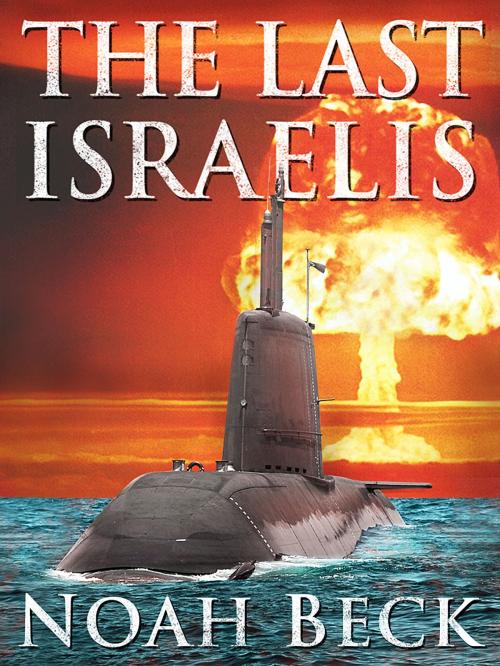The Last Israelis
A Submarine Thriller About The Perils Of A Nuclear Iran
Fiction & Literature, Thrillers, Mystery & Suspense| Author: | Noah Beck | ISBN: | 9781623094522 |
| Publisher: | BookBaby | Publication: | July 4, 2012 |
| Imprint: | Language: | English |
| Author: | Noah Beck |
| ISBN: | 9781623094522 |
| Publisher: | BookBaby |
| Publication: | July 4, 2012 |
| Imprint: | |
| Language: | English |
Iran has been threatening to wipe Israel off the map while actively developing the nuclear means to do so. The Islamic Republic will soon enter the so-called “zone of immunity” by transferring all centrifuges and other key components of its nuclear weapons program into Fordo. This nuclear enrichment facility near Qom was built under hundreds of feet of rock and is thus highly fortified against aerial attack by Israeli fighter jets. But even the hardened Fordo facility could be vulnerable to the U.S. military’s Massive Ordnance Penetrator, a 30,000-pound, earth-penetrating bomb. So the Iranian regime is working on an ominous parallel track to prevent even the last superpower from ending its nuclear weapons quest. As the drumbeats of war get louder, the Prime Minister of Israel is suddenly hospitalized. This is the dramatic, geopolitical backdrop for “The Last Israelis” – a gripping military and psychological thriller. Depicting a doomsday scenario, this cautionary tale about a nuclear Iran takes a suspense-filled ride aboard the Dolphin submarine. The mightiest vessel in the Israeli Navy, the Dolphin provides Israel’s "second-strike" answer to the existential threat posed by a nuclear Iran. The powerful, German-made, diesel-electric submarine is armed with nuclear-tipped missiles that can strike targets 1,500 kilometers (about 930 miles) away. Daniel, captain of the Dolphin, is abruptly ordered to cut his military drill short and bring his crew back to shore. His gut tells him that something ominous is astir, as he and the submariners under his command return for a brief visit with their loved ones, before commencing a mission that will be the most important of their careers, and one of the most important in world history. "The Last Israelis" is full of surprises and unpredictable twists. The story has enough page-turning naval action to qualify as a military and geopolitical novel about a Middle East Armageddon, but it just as easily entertains under the genre of psychological thrillers. The submarine space in which most of the story takes place provides a kind of social experiment that is more intense and compelling than any reality show: 35 men from completely diverse backgrounds who must survive or die together under regular and sometimes life-threatening challenges. The Dolphin's crew almost represents a microcosm of Israeli society: there are two descendants of Holocaust survivors; two native Arabic speakers, including a Christian and a Druze; the son of Persian Jews who escaped from the Iranian revolution of 1979; an Ethiopian who crossed Sudan by foot as a child to reach Israel; religious Jews who serve on a mostly secular crew; the Russian-speaking atheist son of a Soviet Refusenik; a submariner who holds staunchly right-wing views and another who secretly attends leftist rallies; and even a homosexual whose parents were among the Vietnamese refugee boat-people saved by Israel in 1977. How do all of these people get along through the countless pressures presented by submarine life, a variety of life-threatening circumstances, and an intensely divisive dilemma placed before the group of 35 men that provides all of the deliberative suspense of Twelve Angry Men? Added to this cauldron of complexity are the rivalry between the captain and his deputy, and the fact that one of the submariners suffered a tragic horror as a child and quietly lives with the resulting emotional scars -- psychological wounds that could blow up unpredictably at any time. With so many different characters managing so many different issues, it is a remarkable feat whenever the crew manages to function cohesively enough to meet its challenges. But conflict is inevitable. Sometimes the boiling point is reached only in a crewmember's dream, but at other times, the situation is all too real.
Iran has been threatening to wipe Israel off the map while actively developing the nuclear means to do so. The Islamic Republic will soon enter the so-called “zone of immunity” by transferring all centrifuges and other key components of its nuclear weapons program into Fordo. This nuclear enrichment facility near Qom was built under hundreds of feet of rock and is thus highly fortified against aerial attack by Israeli fighter jets. But even the hardened Fordo facility could be vulnerable to the U.S. military’s Massive Ordnance Penetrator, a 30,000-pound, earth-penetrating bomb. So the Iranian regime is working on an ominous parallel track to prevent even the last superpower from ending its nuclear weapons quest. As the drumbeats of war get louder, the Prime Minister of Israel is suddenly hospitalized. This is the dramatic, geopolitical backdrop for “The Last Israelis” – a gripping military and psychological thriller. Depicting a doomsday scenario, this cautionary tale about a nuclear Iran takes a suspense-filled ride aboard the Dolphin submarine. The mightiest vessel in the Israeli Navy, the Dolphin provides Israel’s "second-strike" answer to the existential threat posed by a nuclear Iran. The powerful, German-made, diesel-electric submarine is armed with nuclear-tipped missiles that can strike targets 1,500 kilometers (about 930 miles) away. Daniel, captain of the Dolphin, is abruptly ordered to cut his military drill short and bring his crew back to shore. His gut tells him that something ominous is astir, as he and the submariners under his command return for a brief visit with their loved ones, before commencing a mission that will be the most important of their careers, and one of the most important in world history. "The Last Israelis" is full of surprises and unpredictable twists. The story has enough page-turning naval action to qualify as a military and geopolitical novel about a Middle East Armageddon, but it just as easily entertains under the genre of psychological thrillers. The submarine space in which most of the story takes place provides a kind of social experiment that is more intense and compelling than any reality show: 35 men from completely diverse backgrounds who must survive or die together under regular and sometimes life-threatening challenges. The Dolphin's crew almost represents a microcosm of Israeli society: there are two descendants of Holocaust survivors; two native Arabic speakers, including a Christian and a Druze; the son of Persian Jews who escaped from the Iranian revolution of 1979; an Ethiopian who crossed Sudan by foot as a child to reach Israel; religious Jews who serve on a mostly secular crew; the Russian-speaking atheist son of a Soviet Refusenik; a submariner who holds staunchly right-wing views and another who secretly attends leftist rallies; and even a homosexual whose parents were among the Vietnamese refugee boat-people saved by Israel in 1977. How do all of these people get along through the countless pressures presented by submarine life, a variety of life-threatening circumstances, and an intensely divisive dilemma placed before the group of 35 men that provides all of the deliberative suspense of Twelve Angry Men? Added to this cauldron of complexity are the rivalry between the captain and his deputy, and the fact that one of the submariners suffered a tragic horror as a child and quietly lives with the resulting emotional scars -- psychological wounds that could blow up unpredictably at any time. With so many different characters managing so many different issues, it is a remarkable feat whenever the crew manages to function cohesively enough to meet its challenges. But conflict is inevitable. Sometimes the boiling point is reached only in a crewmember's dream, but at other times, the situation is all too real.















